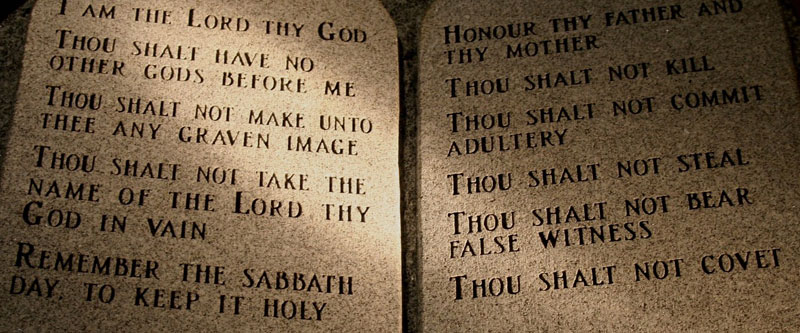We live in a time when the idea of Sabbath rest is almost entirely disregarded. That is certainly true “out there” in the big bad world. Shopping malls, restaurants, and sporting venues have some of their busiest days on the day that should be reserved for the Lord. At this point, the very notion of commerce ceasing for one day of the week is completely foreign. But it will be of the great benefit of the church to stand against this cultural trend and reclaim this great blessing instituted by God.
From creation, the Lord of glory has set apart one day in seven that His creatures might rejoice worship. I have written in other places about the biblical establishment of the Lord’s Day. This article aims at something different: to encourage and help those Christians who are seeking to honor the Lord and His Day.
North American society no longer provides any aids to this end, which is a fairly recent change in the overall scope of history. I spent twenty-four years of my life living in Canada (1985-2009). In my experience it is, in many ways, a more secular and progressive nation than the United States. But I remember driving by the shopping malls when my family moved there in 1985. The parking lots were empty and the stores were closed on Sunday. Social pressure was exerted on businesses in the form of fines to give one day of rest. The desire to worship the Lord on this one day was long gone, but there was still societal support for those who desired to rest and enjoy God’s blessing. That societal protection is now long gone, both in Canada and the United States. It has been replaced with stores who will not hire people who do not have availability on Sunday, all major sports holding their major championship matches on the Lord’s Day, and a general sense of befuddlement as to why anyone would want to forfeit time for recreation and business for something as quaint as going to church.
Even in churches there is even less and less support for preserving the Lord’s Day. This article is aimed at those within the Church who desire to arrest this slide, beginning in their own homes. The first aim is to outline what must be avoided, and the second is to give ideas for what can be done to promote a joyful Lord’s Day celebration in the church for the good of God’s people.
Things to Be Avoided
The basic call of the Sabbath is to set aside person secular employment and free others for their labor (Exodus 20:8-11). There is an additional expectation that the Sabbath be kept with a spirit of delight in the Lord (Isaiah 58:13-14). But there are certain things that should be avoided because they “grease the wheels” for the temptation to forsake the Lord’s Day.
Making Keeping the Lord’s Day Optional
Habits are often associated with a cold, disinterested hypocrisy. However, the consistency that comes with a habit is really just the internal structure that allows people to pursue the things that are important to them. An example from every day life is weight loss. How many diets provide promises of transformation change only to fail because the habits of the dieter have not been changed? Too many “cheat days” undermine any kind of meaningful progress, or when goals have been achieved the draw of unhealthy foods erase what has been gained. To be at a healthy weight remains the goal, but the inconsistencies make it difficult to achieve it in any meaningful way. So it is with the Lord’s Day.
One of the central distinguishing marks of the Lord’s Day is the call to gather with other Christians in worship. Lack of consistency often undermines that central tenet. A particular circumstance convinces the Christian that just this once it is good to work, stay home from church, or in some other way ignore the fourth commandment. Perhaps there is a pressing deadline or a promising new client who needs something done right away. Perhaps family has come into town for a weekend visit. There are many reasons that can be given for a spiritual “cheat day.” And yet to indulge them is to cut our own feet out from under us. There are works of necessity and mercy that can and should be performed on the Lord’s Day. However, most excuses do not rise to that level. And by making the Lord’s Day optional by neglecting worship for one excuse is to make it easier for excuses to multiply.
Speaking Ill of the Lord’s Day
In families, speech plays an important part in how family members view this day. The way a father speaks about Sunday will shape the way his children think of it. If he complains about the things he does not get to do because of the Lord’s Day, children will be predisposed to think of the Sabbath as an obstruction rather than a blessing. It is right instead to speak of the Lord’s Day as time given to pursue what is out of reach on the other six days due to other responsibilities. It is a day of works of piety where the soul is built up and prepared for what is demanded of the Christian from Monday to Saturday.
If there are complaints of the heart, do nto give them voice. Ask that God would change you so you would delight in the Lord’s Day. Bring your heart in submission to the command of Scripture that you might rejoice in the blessings of worship, physical rest, and heavenly anticipation. Your words will follow suit.
Making the Lord’s Day a Drudgery
The activities of the Lord’s Day should match the words used to describe it. It can be repeated a thousand times that the Lord’s Day is a blessing, but if experience doesn’t match those words those statements will be rejected as false. Do not give occasion for the devil to whisper to your family that the Lord’s Day is not a blessing, but a bore. That is not the same thing as saying that the whims of the human heart must be satisfied for the sake of a positive outlook on the Sabbath. It is saying that for the Christian the Sabbath is to be a delight, and that should be matched in the joyful activities of this day. Rather than a day focused on prohibitions, it should be a day where there are special joys. Do not make it hard for young ones to see that this day is wonderful.
Things to Be Done
There are plenty of other cautions over what not to do, however there should also be consideration of positive activities that can protect this day and the blessing it brings.
Live for the Lord the other Six Days
Hypocrisy is the great turn-off for those who have to live under it. Parental influence regarding the Lord’s Day can be obliterated by hypocrisy. The question answered by a person’s conduct is this: does he really mean it. When it comes to children, words are necessary, but easily undermined. Claims about biblical holiness are denied in deed. Parental example given the other six days of the week will either affirm or deny instruction given about the Lord’s Day. Christianity is not a one-day-per-week proposition and that must be modelled. Christianity is the life of the born-again believer who knows the extent and cost of Christ’s work of salvation for him. It is the life of a thankful, rescued soul. And that kind of life cannot be faked.
Making the Day Special
The Sabbath is the most special of all days because it uniquely permits man to do the things he will do in heaven. Worship is to be the delight of this day, but there are other ways to cultivate a joyful attitude toward the Lord’s Day. If it is the most special day of the week, there are additional ways of marking it as such.
-
- Busy parents can give their undivided attention to family. Special family memories can be built through family walks, playing games, and other good things. It does not take away from the Lord’s Day to build Christian fellowship within the family.
- Hospitality encourages the communion of the saints. In heaven worship is a corporate event, not a private one. The saints are to be the delight of the Christian, and that is fostered through hospitality. It allows children to build relationships with others that makes them delight in the going to the church. They are meeting their friends there.
- Children are stimulated by discussions about the big questions of life. Especially as children get older, they are interested in the thorny ethical problems, theological controversies, or issues where the world and the Christian are at odds.
- Songs should be sung in the home that prepare the family for participation in worship. For little ones, memorized songs are one of the few ways they can actively participate in worship. It is good to provide them with those opportunities to break up an otherwise long service.
Praising the Lord for His Day
Verbalizing the privilege of the Lord’s Day is good for the soul. To delight in the Lord is to delight in His worship. There is one day in seven that reminds the Christian of that central delight. Contentment is expressed by praise to the Lord for the gift of rest. Words of praise could be spoken dishonestly which is obviously wrong. But words of praise spoken truthfully are a great help to remembering that the Lord’s Day is not to be cast aside.
The Lord’s Day is to be a delight. A day set apart to remind the Christian that God exists and that He is to be worshiped. However much the world may desire to eliminate that memorial day, the Christian must fight to maintain it. It is a safeguard for him against the movements away from religion and personal holiness.
Pastor Geoff Gleason
Cliffwood Presbyterian Church




